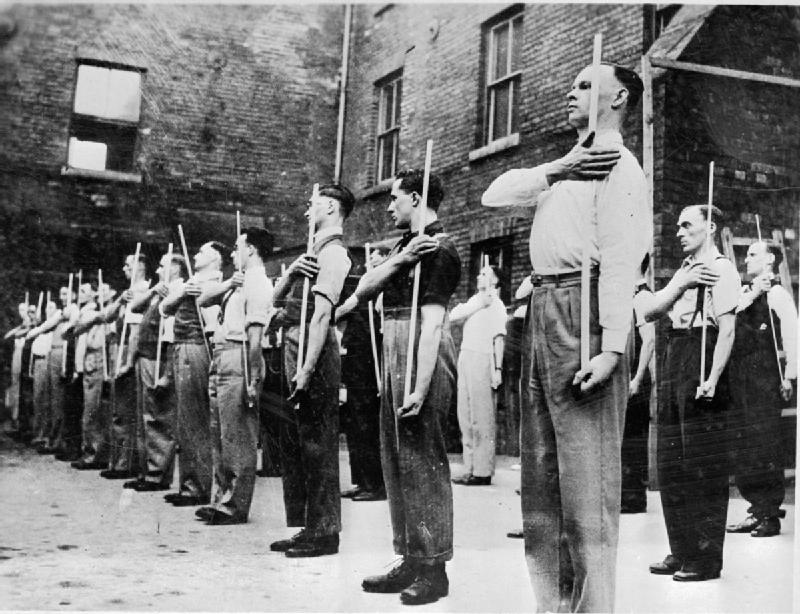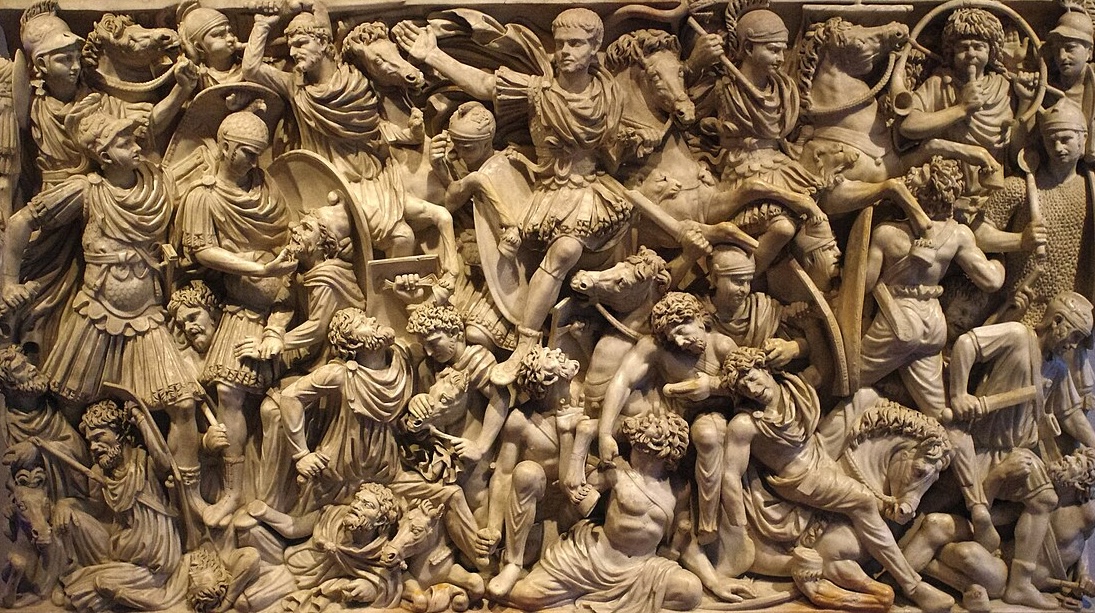
One of the more enduring symbols of Great Britain during the Second World War is the Home Guard — those aging citizen soldiers dressed in ill-fitting surplus uniforms training to take on Nazi panzers with mothballed rifles, improvised whiz-bangs and even broomsticks! While hopelessly (even tragically) outclassed, these determined militia companies epitomize the unflagging pluck of the British people in the face of the relentless Axis juggernaut — or at least, that’s how the story goes.
According to David Edgerton, author of the book Britain’s War Machine: Weapons, Resources and Experts in the Second World War, the Home Guard’s famously obsolete arsenal isn’t (as many might remember) testament to peaceable Britain’s lack of readiness for war, but rather it’s evidence to the contrary. Defence planners in the U.K. were sure that an epic showdown with Germany was coming, so certain in fact they spent much of the 1930s investing heavily in cutting edge military hardware like Spitfires, radar, aircraft carriers and heavy bombers in preparation. It seemed the Brits were stockpiling everything but rifles!
So writes conservative pundit, columnist and former White House speechwriter, David Frum in his review of Edgerton’s book in Sunday’s edition of The Daily Beast.
According to Frum’s piece “Rethink Everything You Think You Know About World War II”, the Edgerton book lays bare a number of other falsehoods about the war.
These include the flawed notion that with the defeat of France, England stood alone. In actuality, the U.K had a sprawling global empire that included the vast riches of India as well as the staunch support from wealthy commonwealth partners like South Africa, Australia, New Zealand and Canada. Germany on the other hand continually struggled for raw materials.
Then there are the dubious claims that Hitler’s u-boats very nearly strangled England into submission when in reality, the Royal Navy’s blockade did far more harm to the Third Reich.
So why did these myths about Britain’s vulnerability persist?
According to the review, Edgerton argues that theses popular narratives of the beleaguered Anglo underdog struggling in the face of overwhelming odds, while questionable, were the perfect tonic for a less palatable reality: London was actually mismanaging the war during those crucial early years.
“The inadequacy of equipment and technology offered a comfortable answer,” writes Frum. “The experience of postwar Britain – which actually was economically overtaken by West Germany – made the comfortable answer also a plausible answer,” he adds.
To read Frum’s review, click here.










you only have to be living here in the UK now to see how the government is entirely capable of messing everything up! 😉
my dad used to tell me stories of his grandad (my great) who was a first world war (wounded) veteran, who was subsequently in a unit of the Somerset home guard. they did sound a bit ‘dad’s army’, like bolting machine guns onto flat bed trucks to shoot at german planes etc, but saying all that any german ground invasion would have found (especially in the rural areas) the locals were quite well armed with multiple shotguns each, ww1 ‘souvenirs’ and the like … plus Churchill’s ‘secret army’ plans and many hidden pillboxes, now ruins or demolished – they used to be great to play in when young!
I am a former soldier in his late forties and I am still fairly sure that I could carry out a platoon or section attack with reasonable aggression and efficiency.
And there we have the big point about the Home Guard, they were not (entirely) a bunch of old men, they were the veterans of the Somme and the victorious battles of 1918. Arguably they were the veterans of an army superior to the one that was ejected from France in 1940. These were men that knew their way around a Lee Enfield.
Add into the mix the fact that that generation were less likely to be employed in sedentary occupations or be ‘obese’ and you have a ready made force of trained, if rusty, combat- wise veterans with a reasonable degree of physical fitness. An option not open to us today.
On the bigger topic, had the US not entered the war, one could hypothesise that it would have become a race to develop the atom bomb. A race that, with the help of refugee scientists from eastern Europe, the British would almost certainly have won.
浴衣 作り方